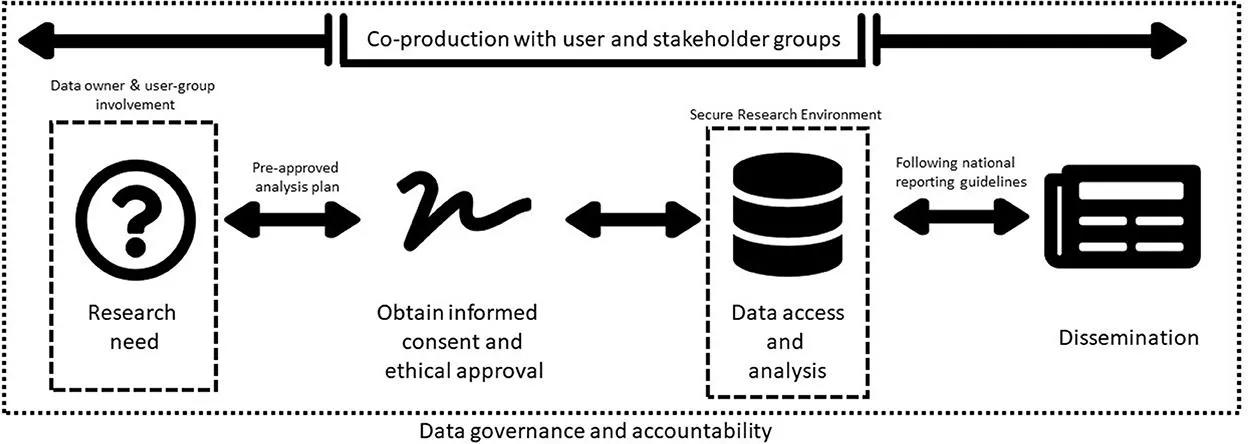Research led by the Institute of Psychiatry, Psychology & Neuroscience (IoPPN) at King's College London proposes a new framework to empower young people in providing informed consent to social media data access by researchers to better understand the relationship between social media and young people's mental health.

The paper, published today in Frontiers in Psychiatry, lays out four core elements to facilitate regulated, confidential access for researchers to social media data in order to make long-term progress toward improved public mental health.
Social media data offers unique insights into the details of a user's online activities. Currently, 'enhancing user experience' is the main factor that social media platforms apply in determining if access to data is granted. However, accredited researchers' use of social media platform data does not usually improve user experience in the commercial sense, rather it has the potential for wider public health benefits. As a result, researchers rely either on self-reported social media use (which is not accurate) or on study participants requesting a copy of their own social media data and providing this to researchers in a non-user-friendly way.
Access to social media data will help researchers understand the interactions and perceptions of users and provide insight into mental health and wellbeing. The new framework, developed in collaboration with a lived experience advisor, psychiatrists and researchers, proposes four core elements to facilitate secure and regulated researcher access to data:
- Determining research need: Qualified researchers at accredited universities intending to use social media data to understand and improve young people's mental health should co-produce their research with patients, carers and members of the public to justify the rationale for data access.
- Ethical approval and informed consent: Participants should always be empowered to understand why and how their data will be used for research. This should be in accessible formats which service user groups co-produce with researchers.
- Data access and analysis: Robust data management guidelines and well-defined accountability of individual institutions should be established. Having a trained service user group with lived experience involved in data analysis can realign researchers' misinterpretations and challenge the ways in which findings are reported.
- Open dissemination: It is recommended for peer review to be conducted before data collection and public dissemination, emphasising the importance of the research question and the quality of methodology. Lived experience advisers or service user researchers should be included in the creation of any documents, briefings and research papers arising from the research to promote accessibility, transparency and collaboration for the public and academic community.
Co-production with user and stakeholder groups is the cross-cutting theme incorporated into each of the four elements. Researchers should work collaboratively with those with lived experience, carers and members of the public to first identify the research priorities and then co-produce research protocols and methods.
We know social media has an impact on young people's mental health and wellbeing, but there is not enough evidence to determine who is affected, how and to what extent. Although social media has strengthened communication networks for many, the dangers posed to at-risk young people are serious. It is important that we unlock social media data's potential for research and use this data for societal good. We hope this framework will be a 'call to action' to stimulate social media platforms, policy makers, researchers, users and stakeholder groups to make positive changes by collaborative working.– Dr Rina Dutta, Reader in Suicidology and Psychiatry and Consultant Psychiatrist at King's IoPPN and South London and Maudsley NHS Foundation Trust and the study's senior author

This work was supported by UK Research and Innovation (UKRI), Medical Research Foundation, Medical Research Council and the National Institute for Health and Care Research (NIHR) Maudsley Biomedical Research Centre.
'Maximizing the positive and minimizing the negative: Social media data to study youth mental health with informed consent' (Daniel Leightley, Amanda Bye, Ben Carter, Kylee Trevillion, Stella Branthonne-Foster, Maria Liakata, Anthony Wood, Dennis Ougrin, Amy Orben, Tasmin Ford, Rina Dutta) was published in Frontiers in Psychiatry (DOI: 10.3389/fpsyt.2022.1096253)






